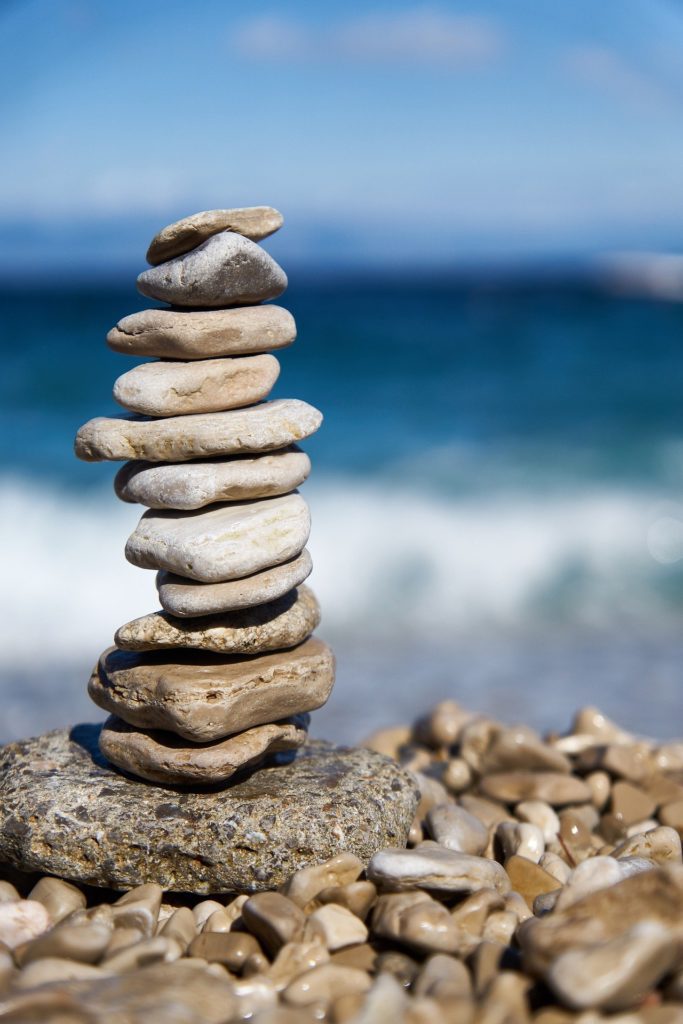This time I wanted to write about something I’m thinking a lot about because we are all probably struggling with it.
Humans don’t love uncertainty- the idea that life as we know it could unexpectedly change at any moment. Uncertainty breeds fear and as we are all aware, fear breeds anxiety, anger, and a whole host of other undesirable emotions and behaviors. However, uncertainty is an absolute guarantee in this life and learning to cope with it can be one of the greatest challenges with the biggest rewards. Learning to be adaptable and resilient in the face of uncertainty and stress has powerful health implications.
There has probably never been a more universal time of uncertainty, at least not in most of our lifetimes. We are confronted with huge uncertain and polarizing topics everyday. This chaos is incredibly stressful! Another important note is this: your body reacts the same on a chemical level if you are merely thinking stressful thoughts as it does if you are in actual eminent danger- it cant tell the difference so what you think and what you tell yourself is critical. Hans Selye said, “It is not stress that kills us, but our reaction to it.” On top of the psychological stress, our lifestyles create physical stress tipping the scale to overwhelm. Poor sleep, a poor diet, poor metabolic function, poor relationships, poor gut health, poor activity.. all contribute to stress.
You may be uncertain about your health, about how you’re immune system will stack up against illness. You may be uncertain about how every day life will play out going forward into winter- more quarantines or lock downs, more illness and death. You may be worried about safety, food security, income, and the state of your relationships. All of this is completely understandable. Stress is a powerful yet often underestimated cause of death and disease.
The bad news is immune systems don’t function well under stress. When stressed we tend to lose sleep, reach for unhealthy foods or alcohol, turn our metabolism upside down, feel fatigued in a way that prohibits physical activity and healthy interactions with our loved ones. Stress lowers libido and makes us irritable. Stress can destroy bodies and minds. Stress robs us of joy.
But the good news is we have much more control over our stress than we think we do. The world is not happening so much to us as we are allowing it to happen. We have a lot more choice over how and where we spend our time, attention, and energy than we think we do.
So here is what I am focusing on for the foreseeable future and maybe it will help you too. First, I am only concerned with what is in my ‘box’. This is a Karate concept (I think, I’m not a Karate expert) that explains the inability to reach what isn’t immediately in front of you, since Karate is largely defensive, not offensive, (again, not an expert) you’re only handling what finds its way into your immediate reach. In short, I am focusing on what I can control and ignoring the rest. Second, I (heavily) filter my day to day informational input and take great stock of where I put my focus and attention. For example, if the news is on the TV at the gym, I listen to a podcast rather than read the subtitles. Third, I spend time with people who are supportive and positive. I put my thoughts, actions and voice toward things that bring me joy and peace. Fourth, I try to be flexible, adaptable and accepting. Without acceptance we can be overcome with grief. The only way I have figured out to make these concepts a reality is to practice mindfulness and gratitude.
If you do not have a mindfulness/breath/meditation practice yet, now is the best time to cultivate one. The benefits of mindfulness include: improved sleep, improved focus and the ability to make decisions, reduced stress, anger, anxiety, and depression, improved emotional stability and resilience and finally it improves the ability to benefit our own lives and the lives of those around us through intention. Even just a few minutes a day is helpful, getting started can be difficult. There are several apps, most of which are free, to help get you started and hold you accountable. I like HeadSpace, Breathe, and MyLife. I often recommend a couple simple routines you can try: one is while walking or moving through your day take account of your senses- pay attention to the smell of the air, the way the trees move in the breeze, the changing light signaling season change, the small nuances of your neighborhood or route to work. The second is more intentional, sit comfortably, place one hand on your belly and inhale deeply feeling your belly expand with the breath, pause at the top, exhale slowly feeling your belly contract. The mind often wanders without anything to focus on so you could count, inhale for a count of 5, pause for 1, exhale for a count of 6. Repeat five times.
Melody Beattie said “Gratitude turns what we have into enough, and more. It turns denial into acceptance, chaos into order, confusion into clarity…it makes sense of our past, brings peace for today, and creates a vision for tomorrow.”. I write down three things every day that I am grateful for, when things are difficult its the same three things: my health, my family, my home, when things seem more plentiful the list expands, but it always brings my attention back to what really matters. I recommend it whole-heartedly.
Facing our fears and uncertainty with grace and compassion is absolutely courageous.
Namaste

